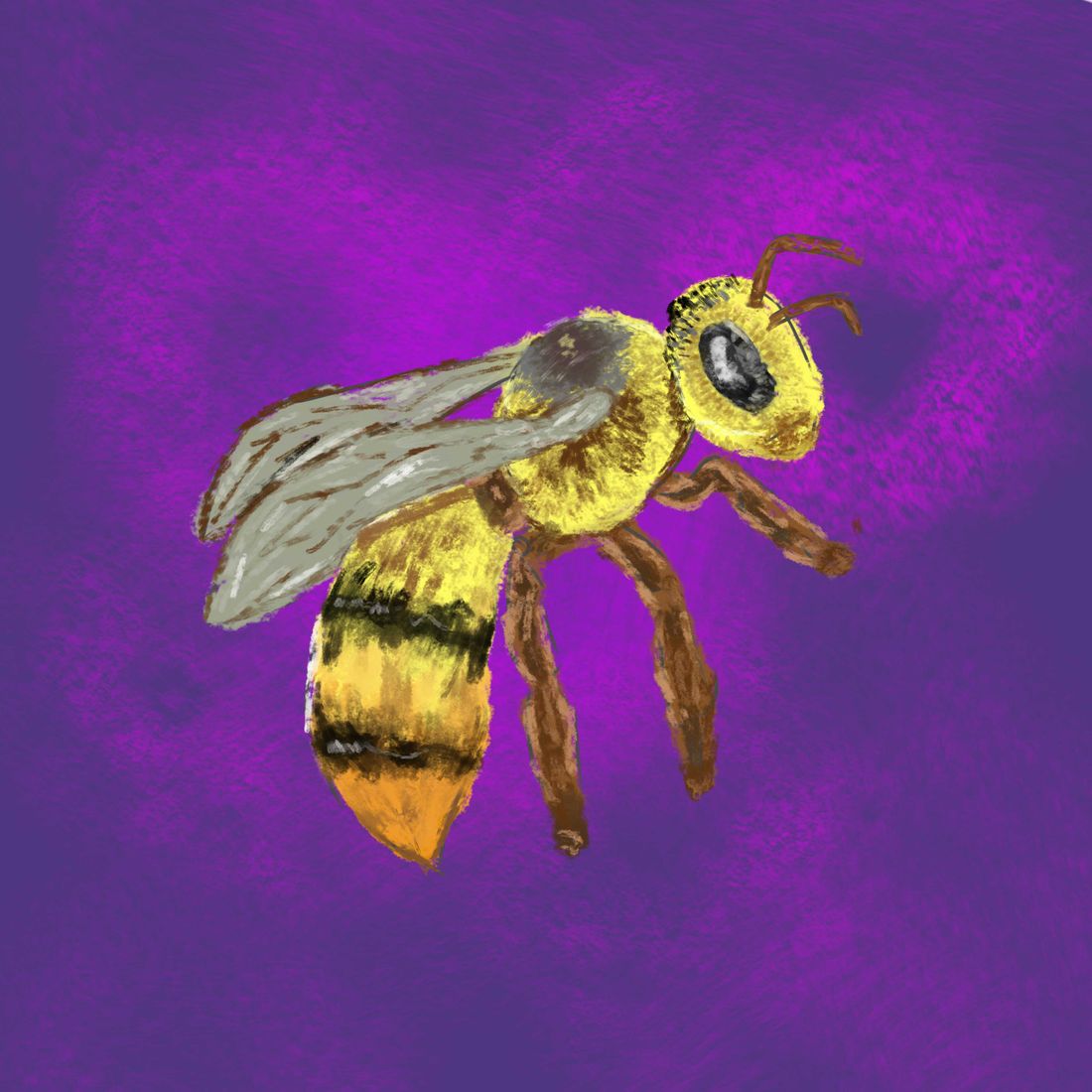BusyBees Can Keep Us From Coughing
Honeybees produce honey, which is acclaimed for its rich diversity…and its health benefits.
Reading Time: 3 minutes

Whether you’ve gone to your local botanical garden and gotten stung by a bee or enjoyed a spoonful of honey on a sick day, honeybees have, in some way, been a part of your life. Honeybees produce honey, which is acclaimed for its rich diversity (there are over 320 different types) and its health benefits.
Humans have been consuming honey for over 40,000 years, with historic cave art across the world depicting people collecting it from honeycombs. Scientist Melanie Roffet-Salque and her team at the University of Bristol found chemical evidence of honey’s historic use: notably traces in pottery pieces from 7,000 B.C. The Ancient Egyptians and Greeks placed honey in their cakes to offer the gods, but it was also used as a sweetener, adhesive, and even as an ingredient in their cosmetics.
Today, honey is used primarily as a natural sweetener and for its medicinal properties. Multiple research reviews have proved that honey is a remedy for upper respiratory tract infections (URTIs), acute wounds, burns, and cuts, and a plethora of illnesses. It is mostly sugar, but also includes antioxidants, such as flavonoids and phenolic acids. These help neutralize reactive oxygen species in your body; reactive oxygen species damage cellular processes and cause aging. Flavonoids can also have anti-inflammatory properties. Medical-grade honey, a special subset of honey, can also work to heal acute wounds. Its low pH and low moisture content can block bacterial growth by dehydrating the bacteria. Before placing medical-grade honey on a wound, it is recommended to clean your hands and use sterile tools.
Honey can also be equally—if not more—effective at soothing coughs as some pharmaceuticals. Its aforementioned antioxidants, antibacterial properties, and viscosity can help with treating URTIs. Doctors might advise around half a teaspoon to two tablespoons before bed.
In many over-the-counter (OTC) pharmaceuticals that treat acute cough, two compounds remain king: dextromethorphan and diphenhydramine. Diphenhydramine, commonly used in Benadryl, is an antihistamine that relieves minor throat irritation, allergies, or the common cold. Dextromethorphan is used to relieve cough caused by the common cold by suppressing a part of the brain that causes coughing and is used in Vicks DayQuil Cough.
When compared to diphenhydramine, honey lowered cough frequency, cough severity, and a patient’s combined symptom score (a number representing both cough frequency and cough severity) more than diphenhydramine. Statistically, honey is significantly more effective than diphenhydramine in reducing cough frequency and cough severity. When compared to dextromethorphan, honey was measured on the same criteria (cough frequency, cough severity, and combined symptom score), but it was not significantly better than dextromethorphan.
However, OTC cough and cold medications containing substances like dextromethorphan and diphenhydramine are not recommended by the FDA for children under the age of two years old, as they can cause serious and potentially life-threatening side effects. Other evidence suggests that the age limit is too low—the American Academy of Pediatrics recommends only giving these medications to children over the age of six. These medications can also be abused for their euphoric and hallucinogenic effects. Diphenhydramine alone caused 3.2 percent of drug overdose deaths in the U.S. in 2016.
Honey is a good replacement for these medications for people over one year of age, though it may affect blood sugar levels or cause allergic reactions. If honey is consumed by an infant, it may lead to infant botulism, a rare but deadly form of food poisoning. Of course, it is always recommended to talk to your doctor about using honey medicinally (e.g., on wounds, or for a cough) to make sure it is the best solution for you.
Honey has been proven to be able to help treat acute URTIs and wounds, as well as improve overall health and well-being. It provides a cheap and generally effective alternative to some pharmaceuticals, and is a great alternative for cough syrups for kids under the age of six. Still, the mass gathering of honey is a subject of debate, but it is clear that the next time you feel a cough coming, make some hot tea with a teaspoon of honey (or just eat it straight up).
